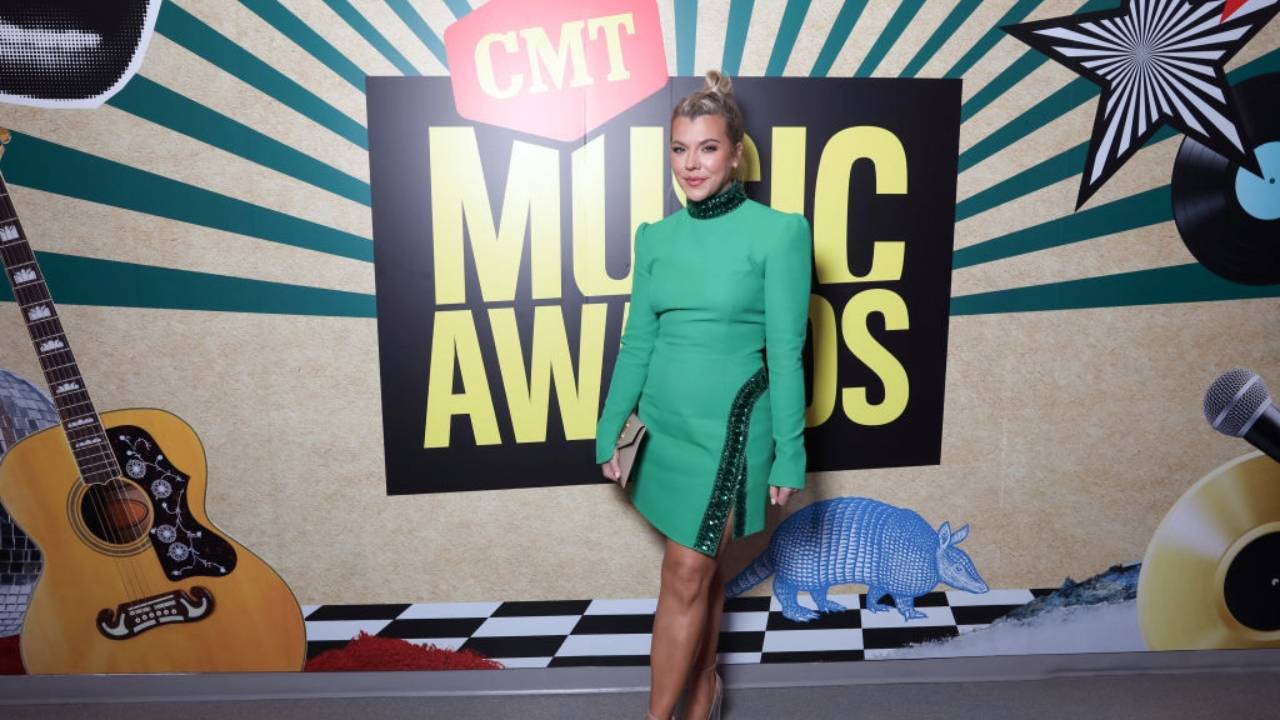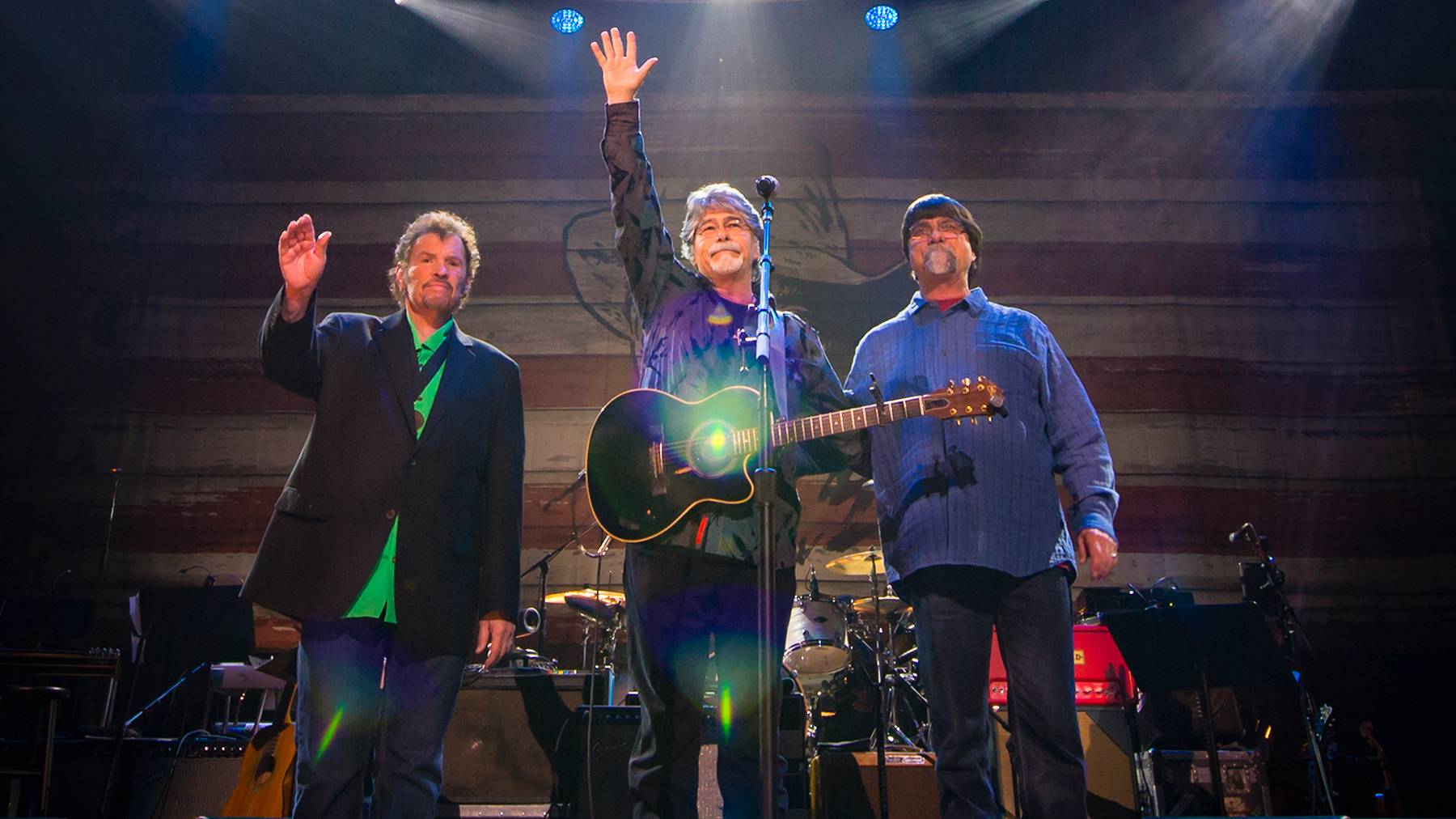T. Graham Brown
Several months ago -- only a week or so after the release of "Wine Into Water," a power-house ballad that's turned out to be perhaps one of the most influential country songs to grace 1998 -- T. Graham Brown sat in a backstage dressing room, stared deeply into space and spilled his guts. "Obviously, I'd love to see that song go all the way," he admitted, "but if it just crawls slowly up the charts and then slowly comes down, I'll be happy."
In addition to the amazing fact that "Wine," a song T. and Bruce Burch co-penned about T.'s own battle with the bottle, is still crawling up the charts, a lot of dreams keep coming true these days for country's "Prince of Soul." He's finally living life to the fullest, alcohol free, and guiding his own career by, most importantly, being himself and recording the kind of music the way he's always wanted.
"This is the first time I've ever got to make an album exactly like I wanted," explains T. of his new Wine Into Water album, his first release in more than seven years. "That's the beautiful part about this -- it's been such a long time that I don't want to say that it's the best thing that's ever happened to me, but it's close. I don't know how to put it into words. It's like somebody had faith enough in me to turn me loose and wasn't worried that I was going to mess it up," he says of Intersound Records' George Collier and Gary Nicholson, the disc's co-producer and dominant songwriter. "People are saying that they really like it and they're people that I trust."
It's faith and trust that the scorching vocalist, responsible for such hits as "I Tell It Like It Used To Be," "Hell and High Water" and "Darlene," relies on most today to guide both his personal and career life. In preparation for the recording of the new album, T. relied on the best, his "soul-brother" friend Nicholson and a fleet of Nashville's best-of-the-best tunesmiths and publishers. Practically all of them showed up -- remembering that Mr. Brown was an extraordinary hit-maker and that if anyone could bounce back with a history-making album, it would be "His T-Ness."
"It was just so much fun picking out these songs," he says. "We got pitched so many and we ditched the real corny ones," he laughs. "I said, 'Now don't be pitching me all of this country s---!' You could hear a roar and murmur go through the crowd. Then I said, 'Nah, I don't mean that. I just mean that same ole, same ole. Pitch that to (a more traditional artist) or somebody who will cut it. I don't even want to see it.' Well, we got it anyway and just kept narrowing it all down and finally got down to 11 songs that we just couldn't live without."
The narrowing-down process was obviously successful. While the title-cut song, "Wine Into Water" keeps pouring at country radio, the entire album continues to garner critical praise from around the country, including stunning reviews and "Best Of '98" picks from such media outlets as country.com, Music Row magazine and several other publications. Brown's concert dates keep stacking up and he's even up for one of the prestigious Nashville Music Awards for Male Vocalist of the Year.
The CMA Award winner, who also developed an impressive resume for both acting and belting out commercial jingles such as the forever-popular "Run For The Border" Taco Bell spots, relied on the trust-and-faith approach earlier on when he decided to turn his personal life around. Unknown to many fans, it was five years ago that T. was on the heels of fame and fortune, but at the doorway of alcohol destruction. Brown's drinking habits became so life-leading that Sheila, his wife of almost 20 years, was forced to come to her husband's rescue -- for both his sake and his family's. Their son Acme is now nine years old.
"I just didn't feel it creeping up," he explains of his past alcohol addiction. "It was just all of sudden you wake up one day and you're deep in a big mess. You get to the point where you ask, 'Are you sucking on the bottle or is it sucking on you?' It was sucking on me. It was sucking my self-esteem, pride, confidence and everything. I woke up one day and I was a mess. I started drinking when I was 15 and I quit when I was 39. That's almost 25 years ago. When I started out, it was great -- going to fraternity parties and getting smashed and having fun. It seemed like 15, 17 or 18 years of that was just a blast. But the way I wound up was just dismal and dark. I was just in this deep, dark hole. I was depressed and had a lot of tearful days."
T., who was no stranger to making efforts to quit several times before with the help of doctors and psychiatrists, finally faced reality when he received a letter from his wife when he was playing in Columbus, Georgia. He remembers reading the eight-page letter in the morning, because he was hung over in the worst way. "She wrote in this letter that I had a lot of people that were pulling for me and that loved me and were counting on me -- my family, my fans and my friends in Nashville. Then she got to the part that said, 'You have a precious gift from God, our son, and I'm afraid that you're missing him grow up. And I'm afraid that one day you're gonna wake up and he will be grown up and gone and you will have missed the whole thing.'
"Man, that thought had never crossed my mind," ponders the entertainer, who hasn't touched a drop of alcohol in more than five years. "I looked at it again and said, 'Man, the guy in this letter is in bad shape!' So I called home and was crying, 'Have I really turned into this?' Sheila said, 'Well, I hate to tell you, but you have.' It just shook me to my soul because I never would have dreamed that I would turn into that. I always thought I had a handle on it. Somehow that day, I was able to quit drinking. I haven't had a drop since."
When Anthony Graham Brown first moved, however, to Music City from his native Georgia in 1982, he approached the Nashville music scene the way he had read about it in the "rag" magazines. He recalled how artists like Waylon Jennings and Willie Nelson were reportedly having drugs smuggled into the studios while they were recording records.
"I was such a green horn when I moved to Nashville," he admits. "I was finally hired to do a major demo session and the A-team bunch of guys were there. It was a 10 o'clock session and I walked in with a cooler of orange juice, ice, and my cup and a half-gallon of vodka in the other hand. I walked in that studio thinking that was the way they did things. They all looked at me like I was from Mars. They didn't say anything to me that day. They were going to say something to me about it, but then they heard me sing. They said, 'Just shut up and leave him alone -- anybody who can sing like this, let him drink.' As soon as they said that, I felt like I had the green light to just go on and drink at every session, and I did. It got to be known that I was quick in the studio and would nail the thing. They thought, 'Hey, he might be drinking a little bit but he'll get the job done.'"
T. did get the job done, as well as record a string of albums that featured several more hits like "Brilliant Conversationalist," which even cracked VH-1 airplay, and his smash duet with Tanya Tucker, "Don't Go Out." He eventually did go out, literally, once when he was the honored guest at a record label executive luncheon. Before arriving, T. had downed several drinks and ultimately fallen face first in his plate of food -- or so he was told.
"It's been really cool since I quit, and I'm amazed that I haven't drunk, because I love to drink. I just got used to having something in my hand all the time. I'd wake up in the morning and pour me a drink and didn't think anything about it. That's just the way I did things."
How does T. do things today? Again, he relies on the trust-and-faith formula, most of which is in himself -- a trait he rarely used before. "Everything is better now," he confirms. "I found out that I had been running from reality all my life. I've also found out that reality is not that bad."
Reality also means finally not having to explain what his music is all about.
"I've had to do a lot of explaining," Brown admits of his smokey-soulful style of country, "but I haven't always felt like that I needed to explain. The thing about country is nobody knows what it is. It's everything. It's Jimmy Rodgers and Jerry Lee Lewis to you name it. I've always had to explain myself to people who don't understand or get what I do. The people that get what I do, there's no explanation needed -- they just get it. That's the thing I hate is getting pigeonholed in one thing. I don't understand why you can't do a lot of things. That's always bugged me -- why you have to do one particular 'niche' thing. And that's your thing and you're not supposed to do anything other than that. Well heck, I made up whatever that thing is anyway, so I've got a right to change it when I want to. That's the way I look at it. I think if a record company signs you because they like what you do, it seems like they'd leave you alone and just let you do it.
"That kind of stuff to me now just doesn't mean a thing," he continues about the conformity in his early career. "Fame doesn't mean a thing to me now either. The good thing about the troubles that I've had is that I've gained so much wisdom and such a great perspective on everything -- especially since I've sobered up. I'm singing better than ever and I just don't have time for a lot of the B.S."
Of course, B.S. for "His T-Ness," a man long regarded for his conservative demeanor, only stands for Bitter Situations.





